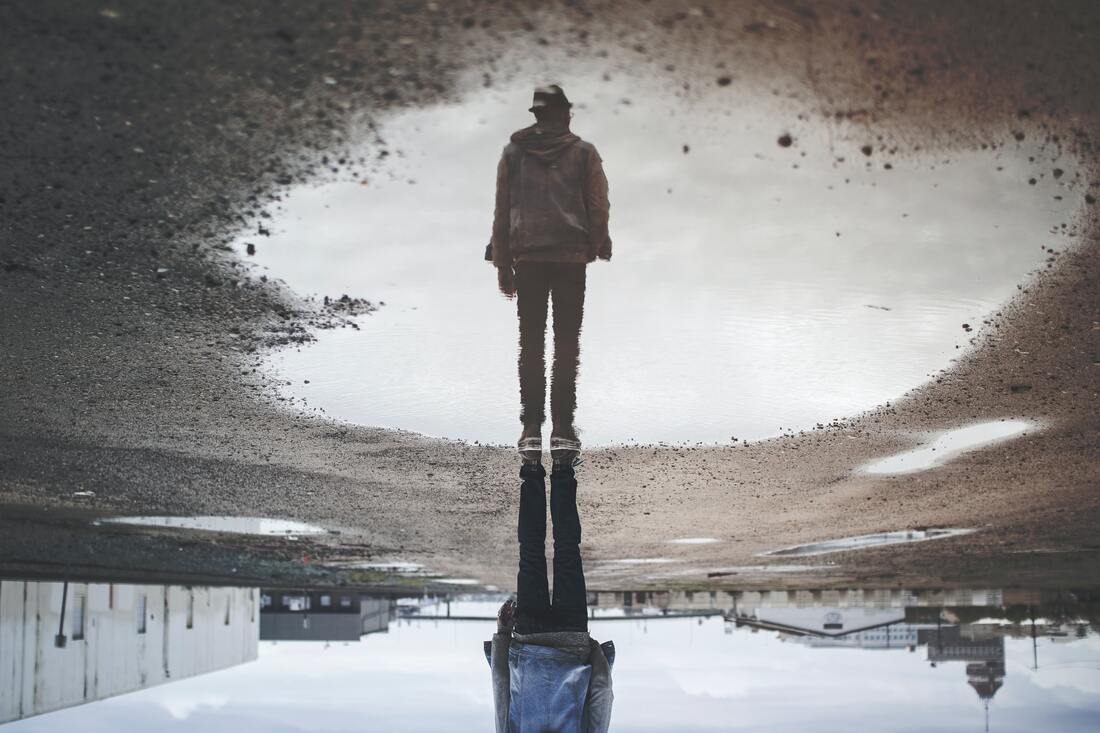AuthorRéné Pallace Archives
July 2022
Categories |
Back to Blog
How are you Really?10/23/2020 How are you? I really want to know. It’s important. Really. More important than ever. How you are has everything to do with who you are becoming and where we go from here. Sam Sifton who writes New York Times Cooking cares as well. “Good morning. You doing all right? Mondays land heavily sometimes, especially seven months into this pandemic that stalks the world. It’s been exhausting. We’re working more, or not working enough or not at all. We’re staying safe while others aren’t. We’re worrying, staring, thinking, overthinking. We are on, all the time. The weekend comes and maybe we get outside and into the world and maybe that’s a relief, but then its over and the circus music blares once more. So I hope you’re all right. I hope you’ll take the time to be all right. That’s work too, sometimes.” So how do you ‘take the time to be all right’? “Most of us believe we have a fairly firm grip on reality. But, behind the outer world we perceive exists the causal world of energy. It is from this plane that we draw into our life whatever we resonate with. We can modulate our energy by changing what we think about and how we think about it. Focusing on all that’s going well helps us counterbalance the daily tidal wave of negative information. Acknowledging what is negative helps us remember that there is always a battle between opposing forces, forever moving out of and back into...Balance.” Gratitude Twenty Four Seven. As a professional listener, I am all right but I am worried. These days and times are a lot to wrap one’s head around. And under quarantine and into our new WFH experience, few of us have any experiences to reference...and I know the following idea is inspiring. “Many people live in fear of some terrible event changing their lives, the death of a loved one or a serious illness. For the chronically ill, this terrible event has already happened, and we have been let in on an amazing secret: You survive. You adapt, and your life changes, but in the end you go on, with whatever compromises you have been forced to make, whatever losses you have been forced to endure. You learn to balance your fears with the simple truth that you must go on living.” Jamie Weisman, as I Live and Breathe. Blessed are those who suffer “I’m fine.” Or “Fine” is the proper response to “How are you?” Quora “If you say that you are fine, you mean that you are in good health or reasonably happy.” www.collinsdictionary.com. Not feeling fine, actually being overwhelmed, anxious, and stuck is a new normal for most of us. Still, the mind is an incredible thing especially if nobody gets to be wrong. “The great paradox of the brain is that everything you know about the world is provided to you by an organ that has itself never seen the world.” Bill Bryson, The Body. Front line caregivers are describing working in this pandemic like flying a plane while you are building the plane. We are in chaos. We are all vulnerable. And the chant I hear most among my peers is It’s Okay Not To Be Okay. The dis-ease of COVID is giving rise to many paradigm shifts. What if in these times those of us who are “not all right” are the ones who are right in “not having a normal mental state or condition”. As uncomfortable as we may be, our dis-ease is a healthy reaction to an unhealthy situation. Ideally, a human life should be a constant pilgrimage This crisis is one of collective grief. Our assumptive world has been shattered. The general mind loop one may experience is thinking that the world is no longer benevolent, the world seems meaningless, and my place in the world seems insignificant. These days this is all true/Or is it? We are afraid of suffering. We are suffering. We are afraid of dying. We are dying. “We know that the unprecedented challenges from the pandemic, the economic fallout it has brought on and the racial unrest in the country are having an effect on Americans’ mental health. The prevalence of symptoms of an anxiety disorder was three times as high and symptoms of depression were four times as high in June 2020 than in the second quarter of 2019, according to the Centers for Disease Control and Prevention. The pandemic’s psychological ripple effects are different from, say, those of natural disasters, which last merely hours or days. The pandemic is like the never-ending story.” Stacey Colino, The Washington Post, The Pandemic Proves We All Should Know Psychological First Aid. Still, there are opportunities given to each of us every day to order our dis-ease. The sun rises. The sun sets. So too we can create more ease for taking good gentle care of ourselves, making our beds, finding new ways of doing things, giving ourselves permission to feel, taking deep breaths, accepting change, counting our blessings, making rituals honoring our lives and loves, visualizing our peace, and slowing down. Facing these new days takes courage and reframing may help. Perhaps consider that behind our masks, we have “breath or cooked air...there is a furnace in our cells and when we breathe we pass the world through our bodies, brew it lightly, and turn it loose again, gently altered for having known us.” Diane Ackerman, A Natural History of the Senses. “Cogito, ergo sum...Je pense, donc je suis...I think, therefore I am.” Rene Descartes. You think too and I am curious about your experience with these new and different times. This living is our human experience. We are dying a little every day and that is our human experience, too. “When we are struggling we don’t need a book in our hands. We need the right words in our minds. When things are tough, a mantra does more than a manifesto. Eric Greitens, Resistance. This challenging time has given rise to some brave new leaders. Glennon Doyle disarms her demons by reframing them as guides. “They’re just guides to tell me what is the next right thing for me to do. Loneliness- it leads us to connection with other people. And jealousy- it guides us to what we’re supposed to do next. And pain guides us to help other people. And being overwhelmed- it helps us- it guides us to ask for help...I’ve learned that if I honor my feelings as my own personal prophets and instead of running I just be still...there are prizes to be won and those prizes are peace and dignity and friendship...Maybe, it’s okay, to say actually today I am not fine. Maybe it’s okay to remember that we’re human beings and to stop doing long enough to think and to love and to share and to listen.” TED Talk Namaste
0 Comments
Read More
Back to Blog
WHATWHYHOW10/10/2020 You don’t know why it’s such a far cry This has been and continues to be one hell of a year. "The times are urgent. Let us slow down." Bato Akomalafe, PhD Grieving is a form of activism. What is it to slow down? Emotions need motion. Seek balance. What if this is all a dream? Thoughts create the way we feel. Listen. Process. Is death an experience like any other? Knowing is an act of faith. Be curious. How do we engage with that which we cannot see or really know? It’s coming time that we need to learn to live in our new world. And though the earth may tremble and the oceans pitch and rise |
 RSS Feed
RSS Feed

